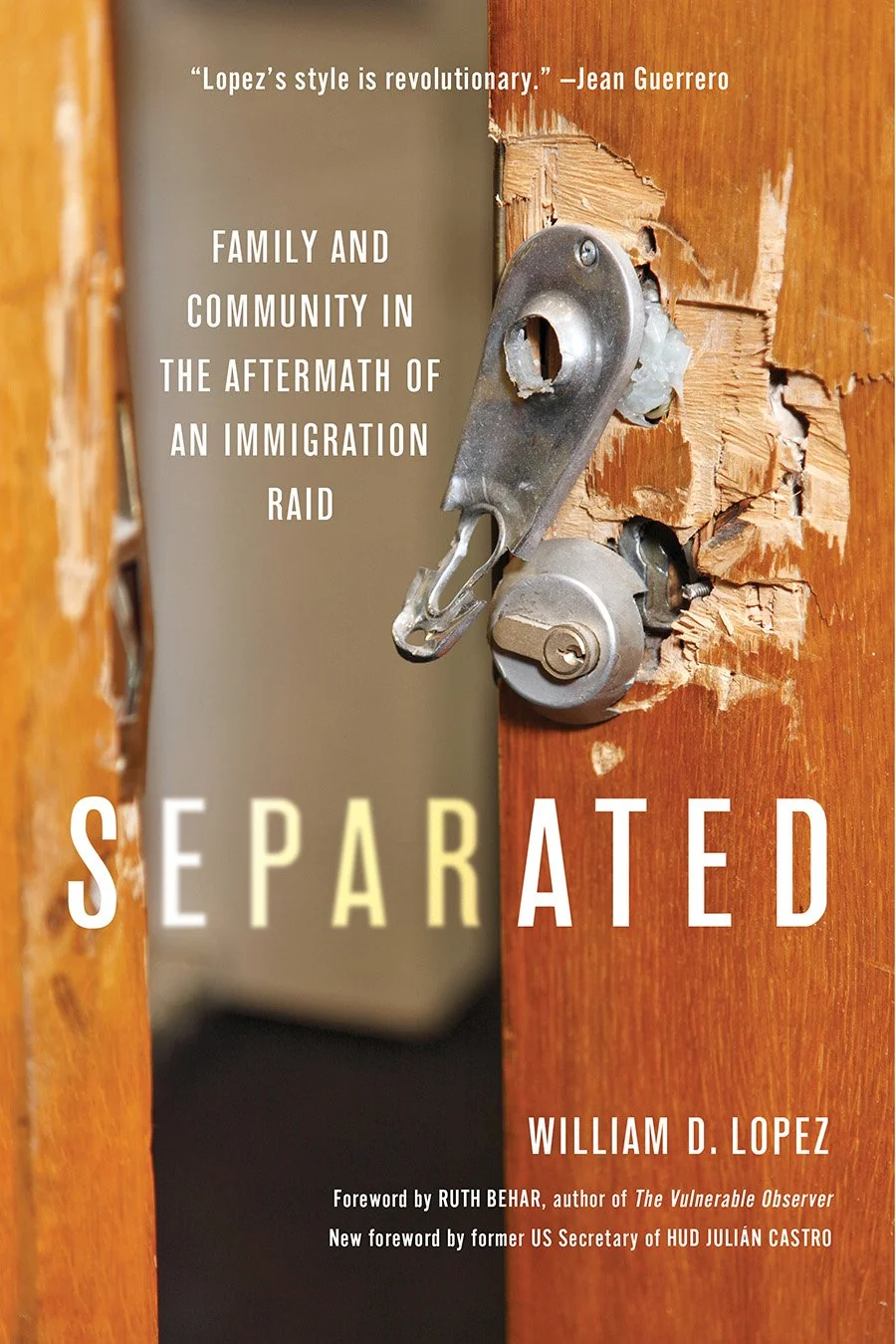“Lopez's style is revolutionary...."
- Jean Guerrero, Investigative Journalist
Dr. William Lopez is a Clinical Associate Professor at the University of Michigan School of Public Health and Faculty Associate in the Latina/o Studies Program. He is the author of Raiding the Heartland: An American Story of Deportation and Resistance, a follow-up to his award-winning first book, Separated: Family and Community in the Aftermath of an Immigration Raid. In addition to his academic research on the public health impacts of deportation, Dr. Lopez regularly contributes to the public discussions on deportation, diversity, and Latino culture in venues such as the Washington Post, CNN, San Antonio Express News, Detroit Free Press, and Truthout. He is on the Boards of Health in Partnership and The Latino Newsletter.

Chronicles the devastating impacts of immigration raids—and the enduring resistance of immigrant communities in the aftermath.
Across the United States, Immigration and Customs Enforcement (ICE) upends small towns and rural communities by staging dramatic raids and rounding up hundreds of people in a single day. These worksite raids fracture families, devastate local economies, and spread fear and trauma that lingers for years. Yet in the wake of these devastating raids, immigrant communities exhibit resistance, resilience, creativity, and an extraordinary determination to rebuild.
William D. Lopez details the incredible strain that immigration raids place on Latino communities—and the families and friends who must recover from their aftermath.
In Separated, William D. Lopez examines the lasting damage done by a daylong act of collaborative immigration enforcement in Washtenaw County, Michigan. Exploring the chaos of enforcement through the lens of community health, Lopez discusses deportation’s rippling negative effects on families, communities, and individuals. Focusing on those left behind, Lopez reveals their efforts to cope with trauma, avoid homelessness, handle worsening health, and keep their families together as they attempt to deal with a deportation machine that is militarized, traumatic, implicitly racist, and profoundly violent.



